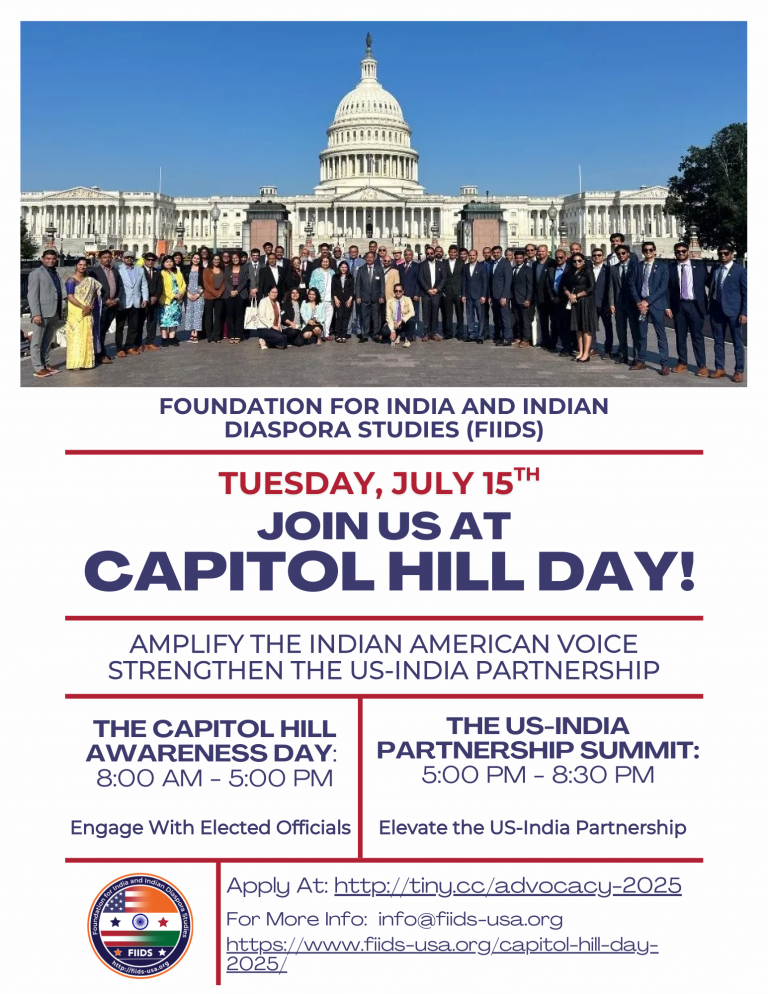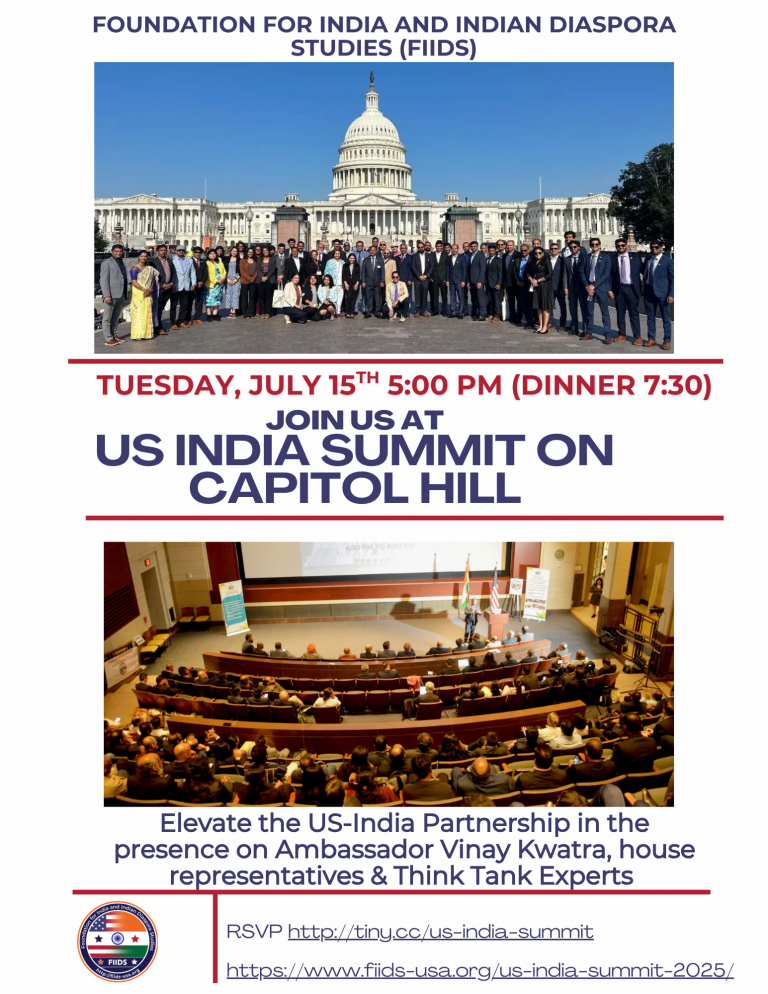
Event Videos: https://www.youtube.com/playlist?list=PLSK1U-UZJglfGAio3xnXAytgJ6nPECIS3
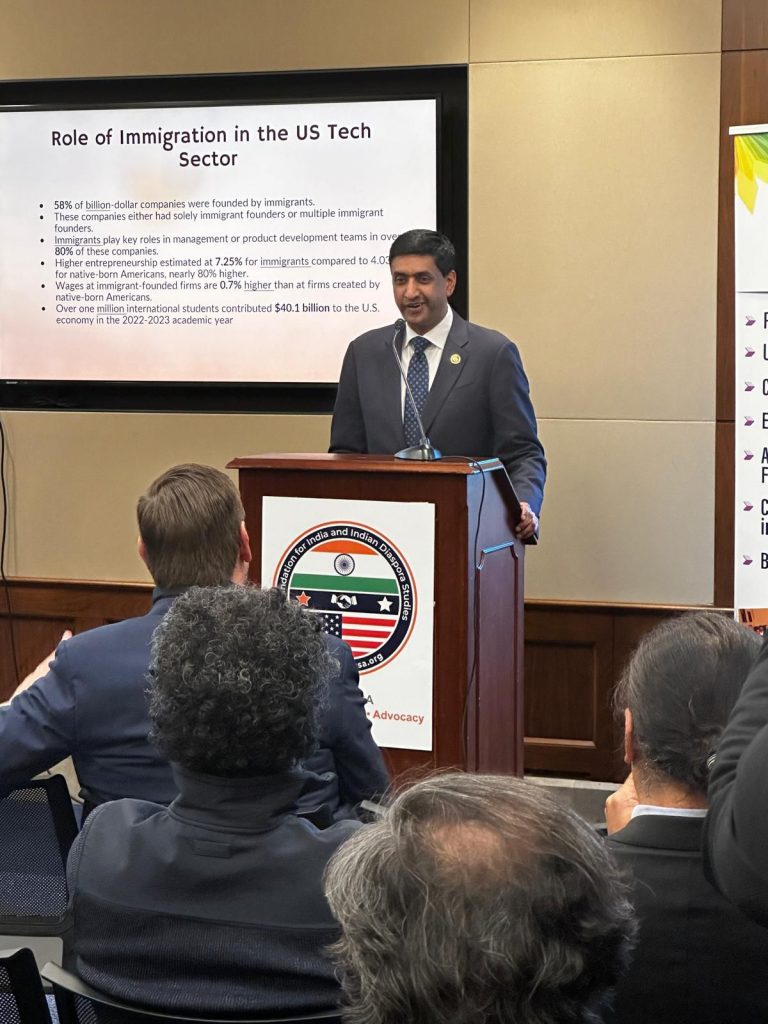
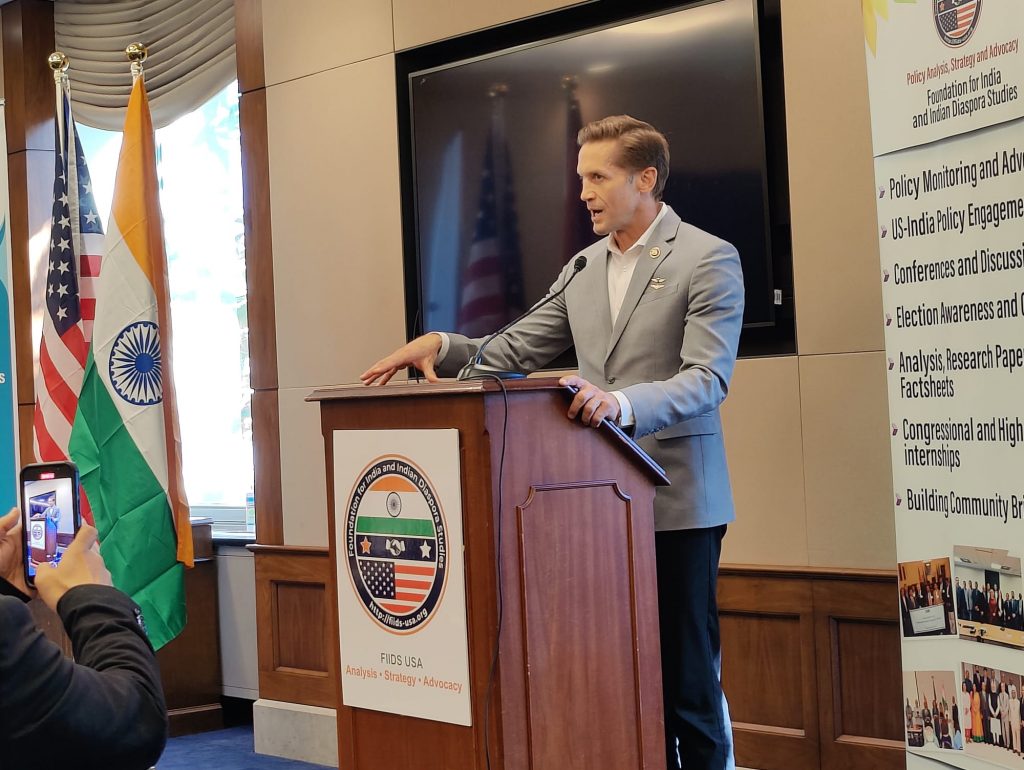
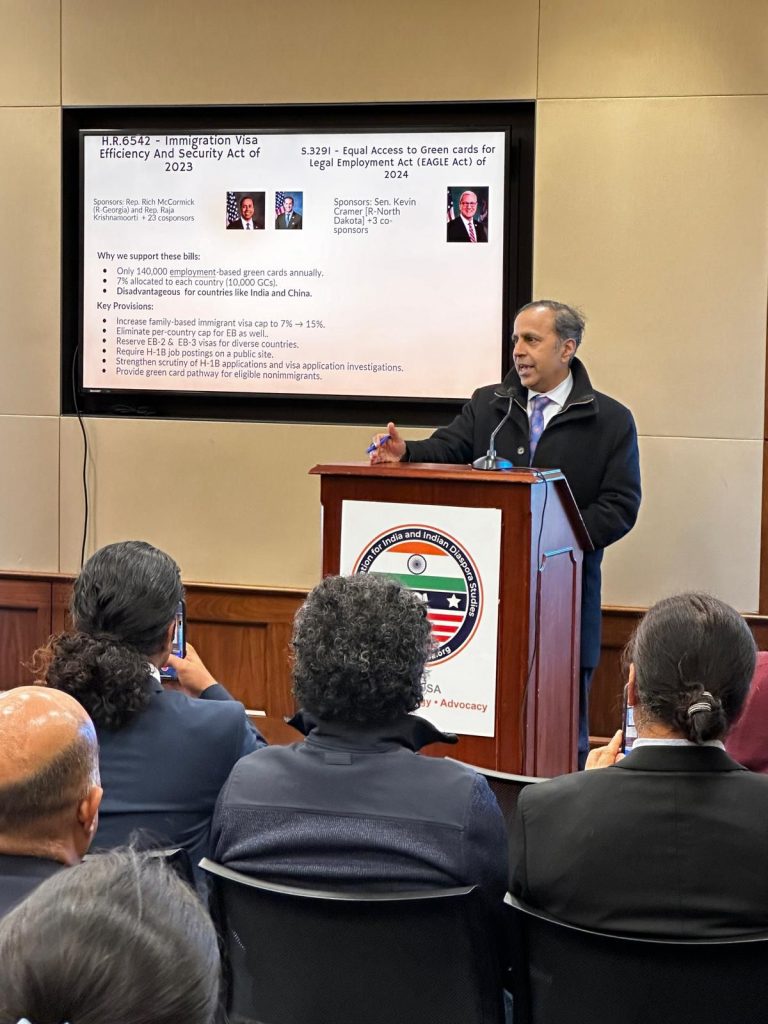
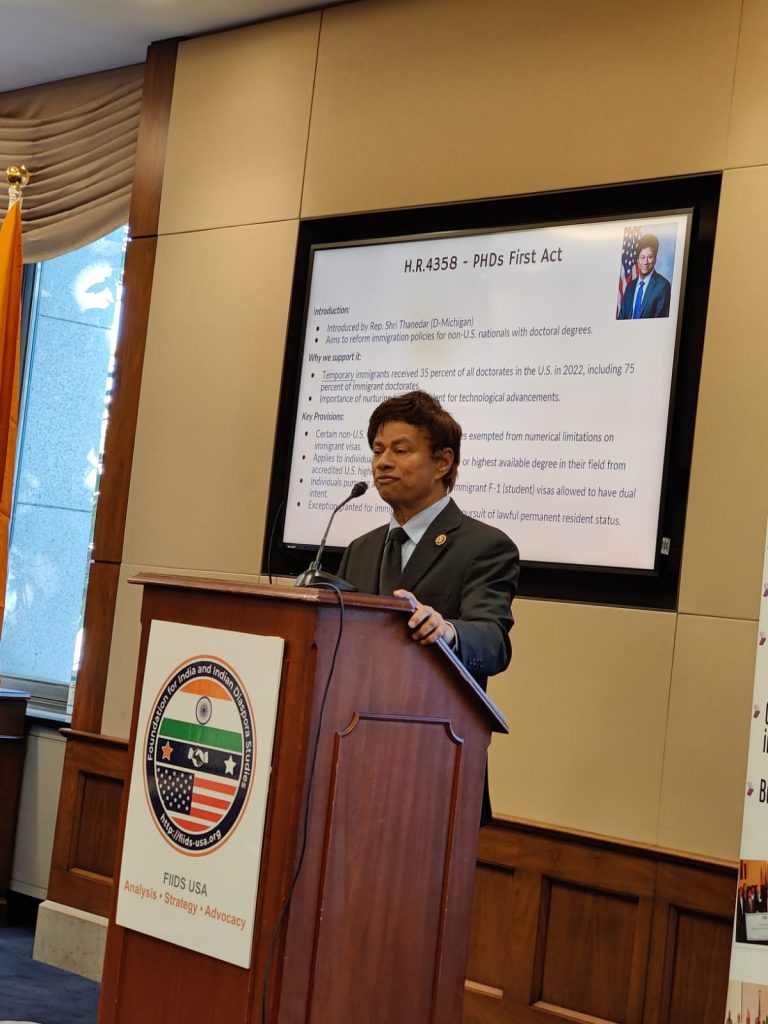
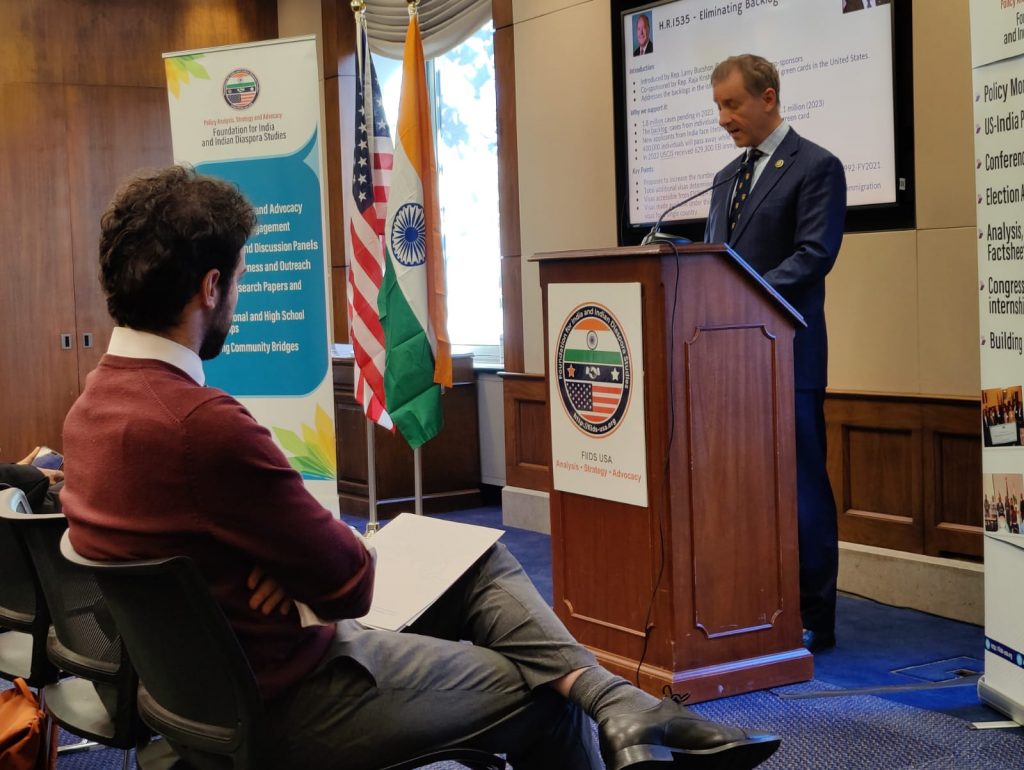
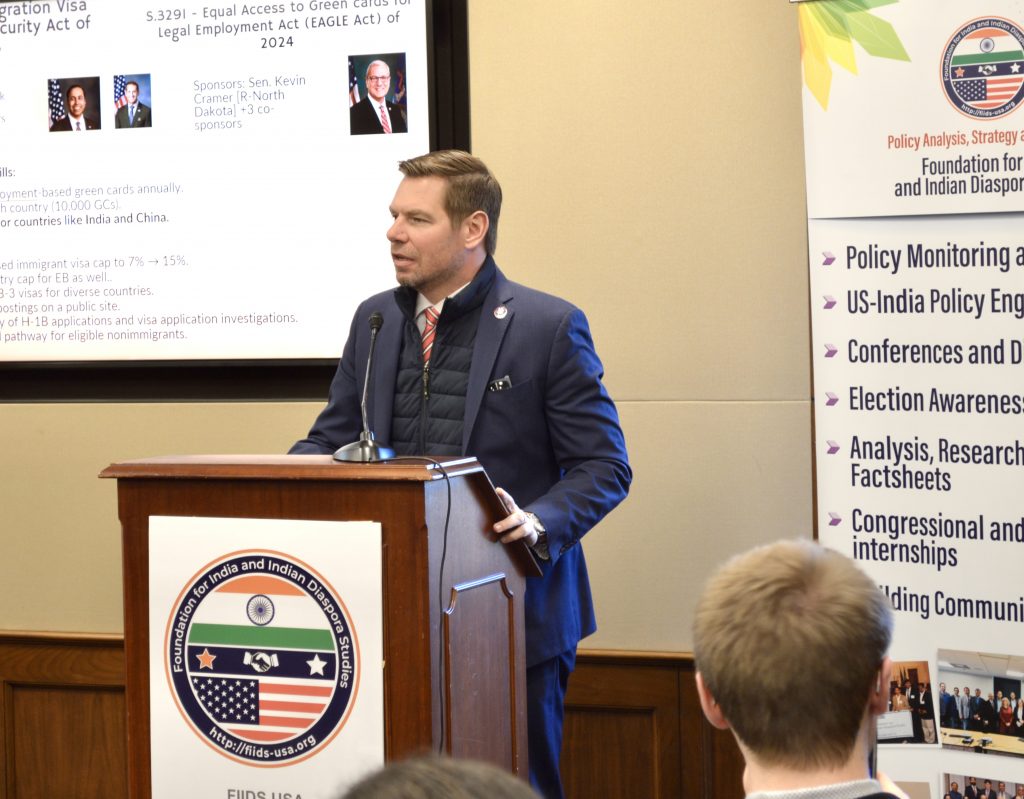
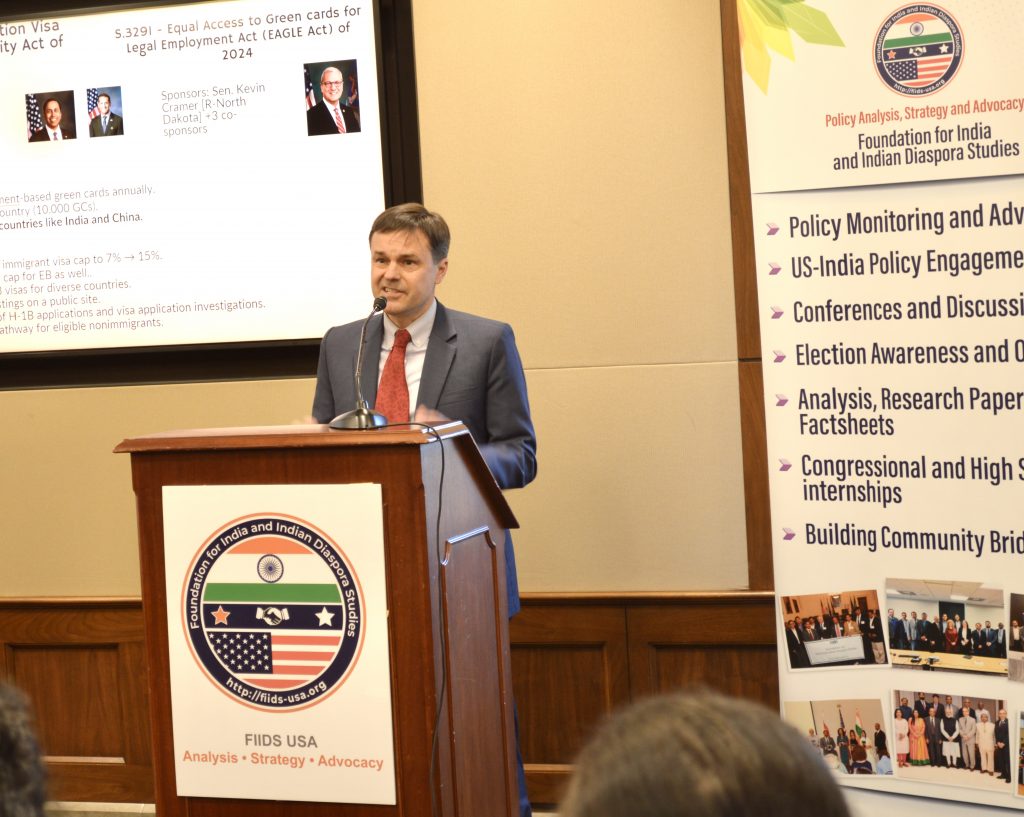
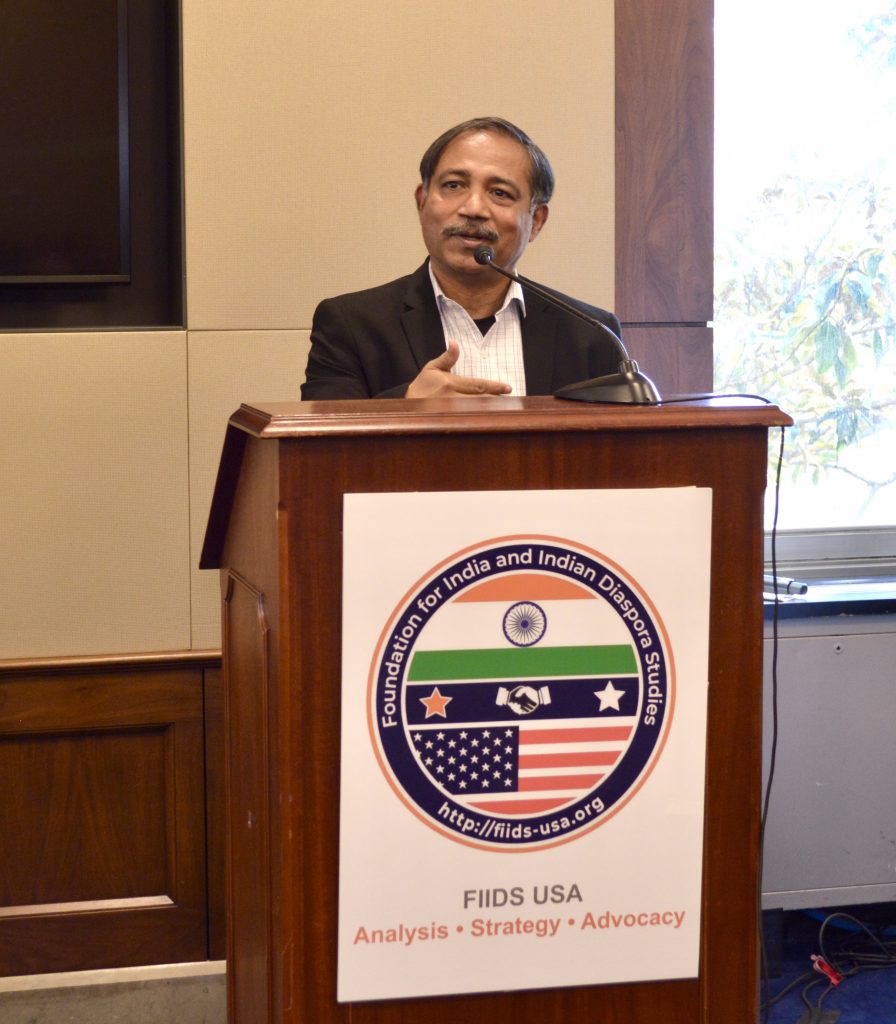
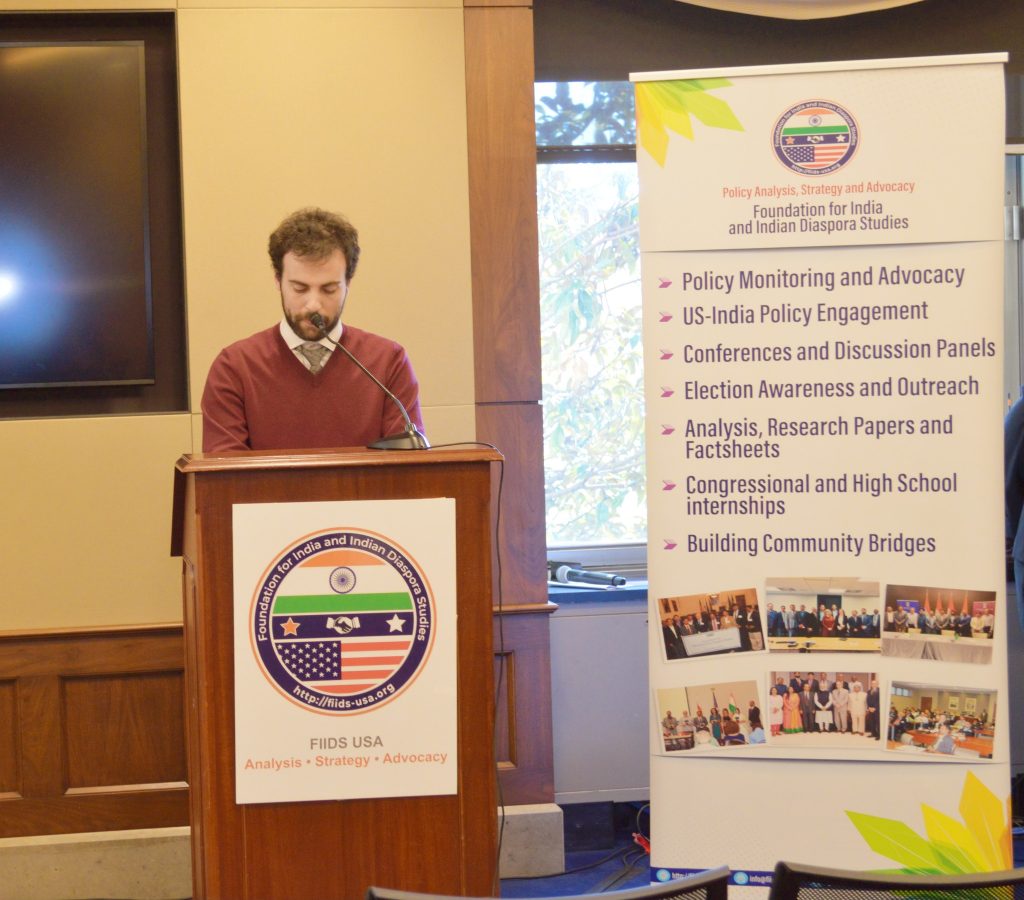
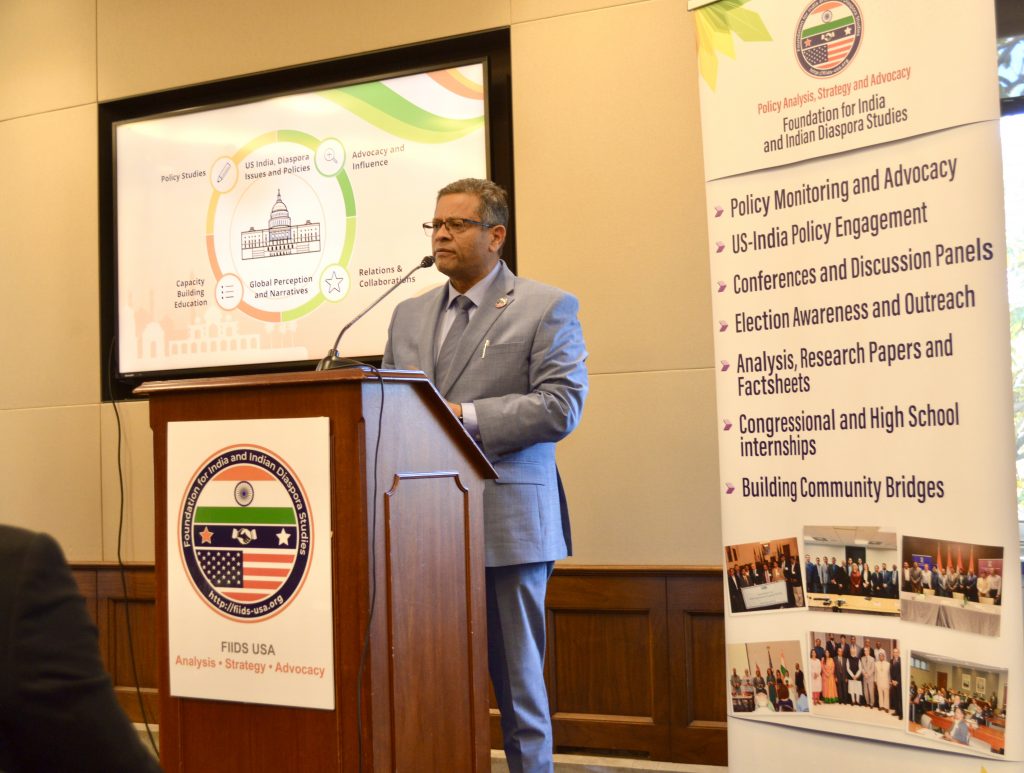

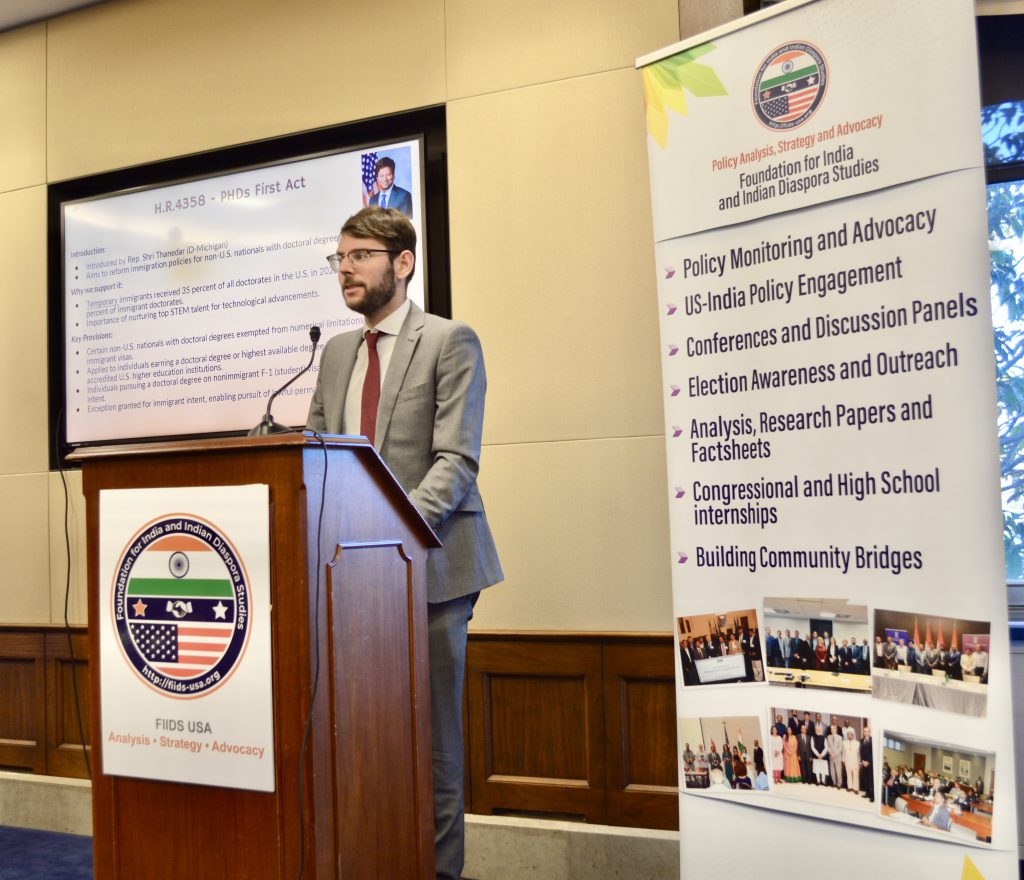
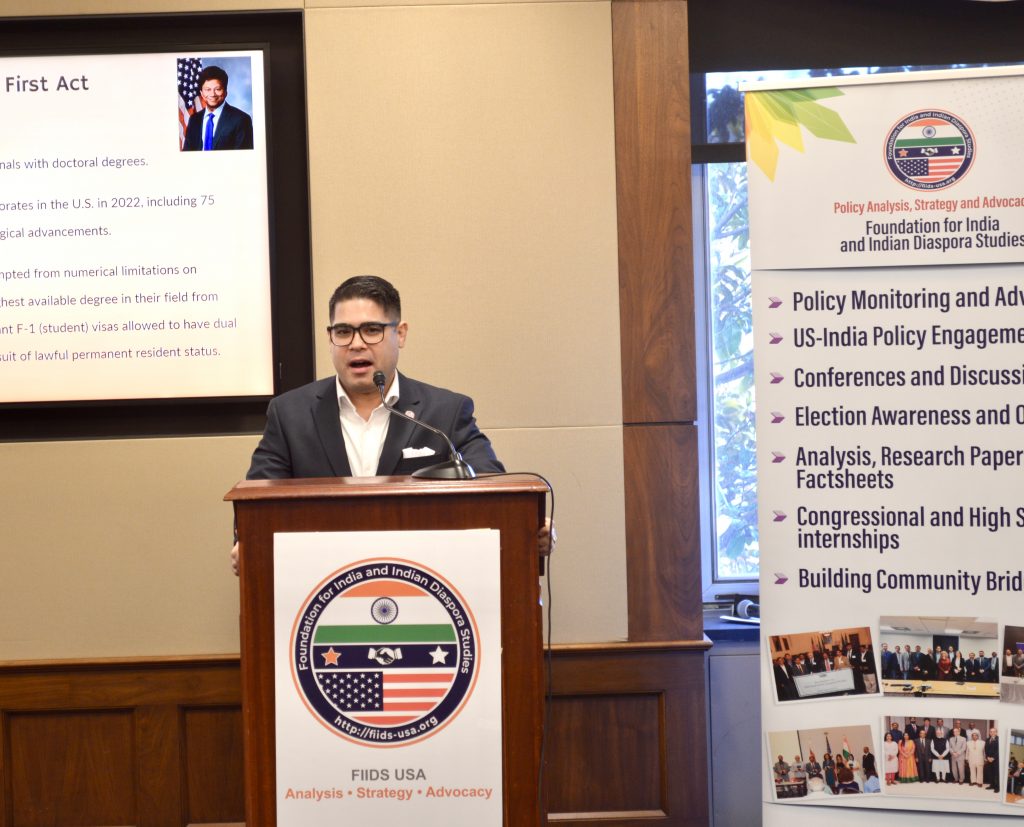
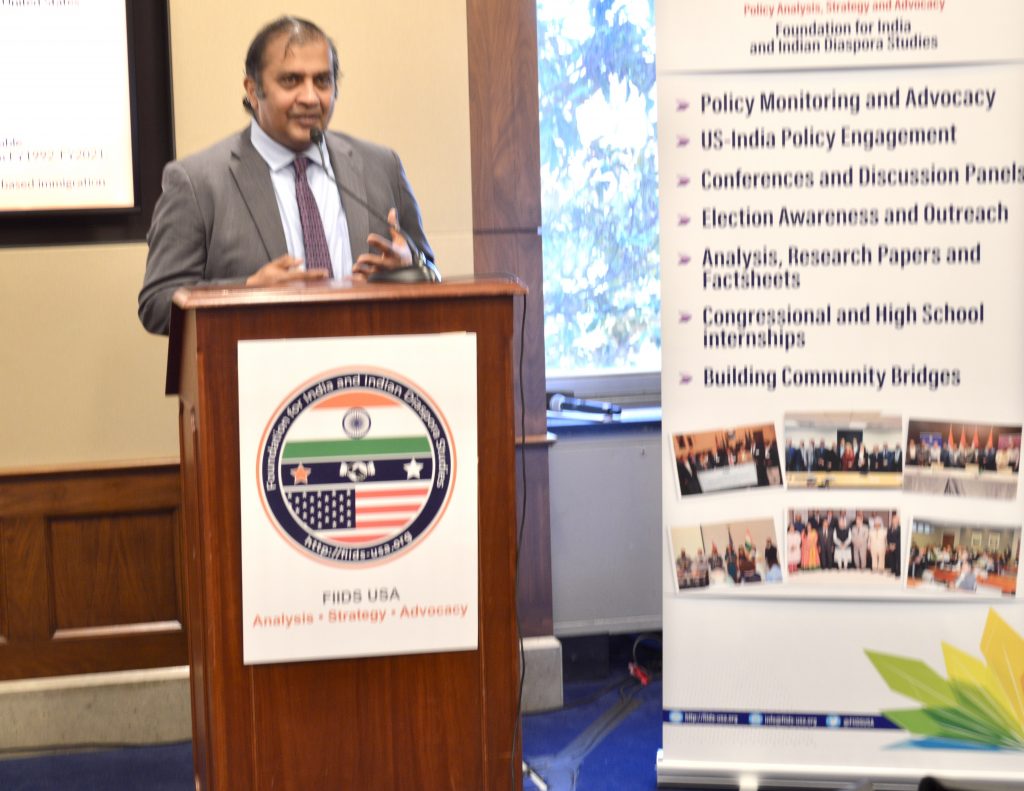
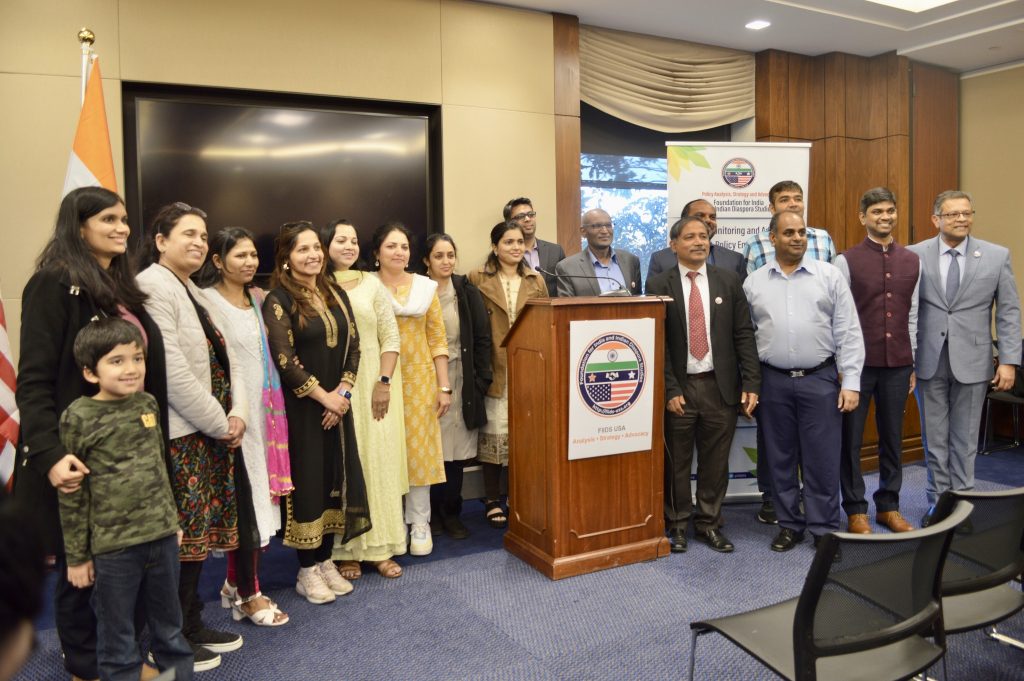
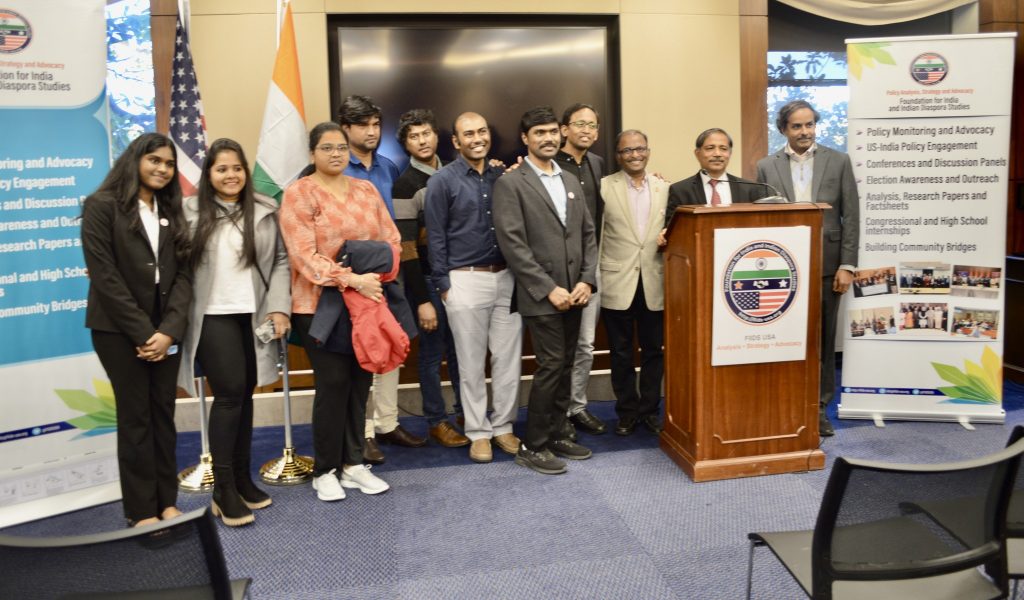
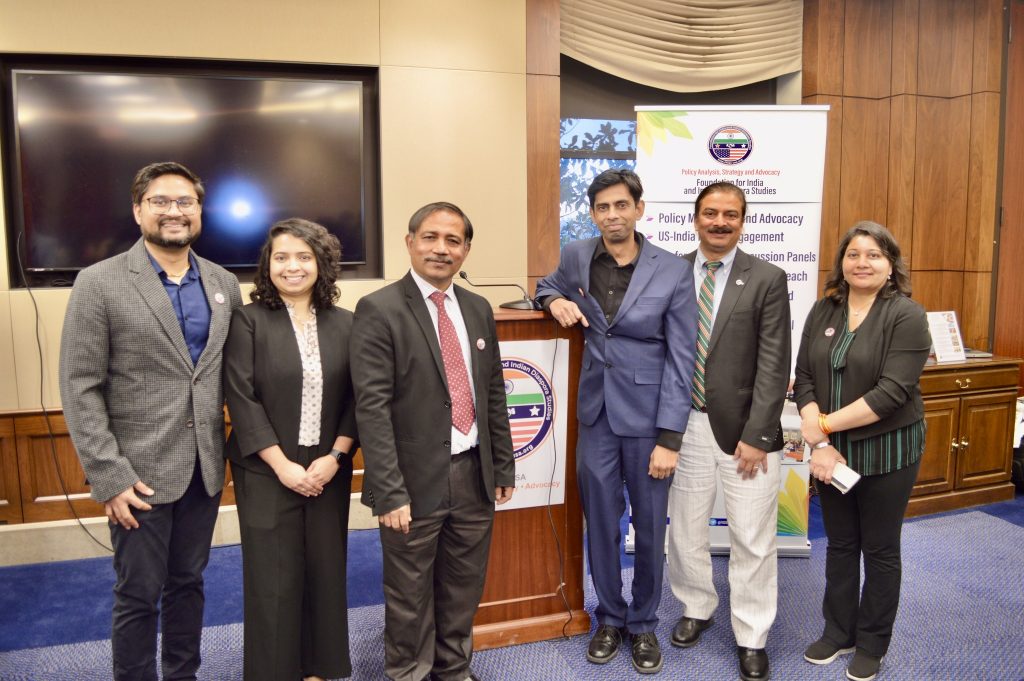
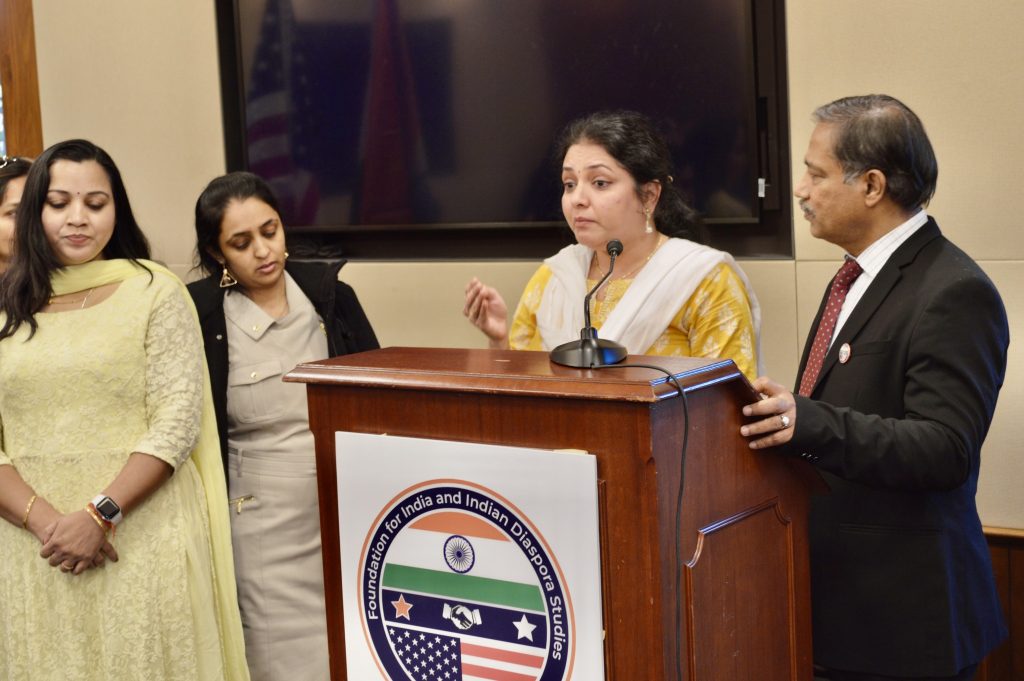
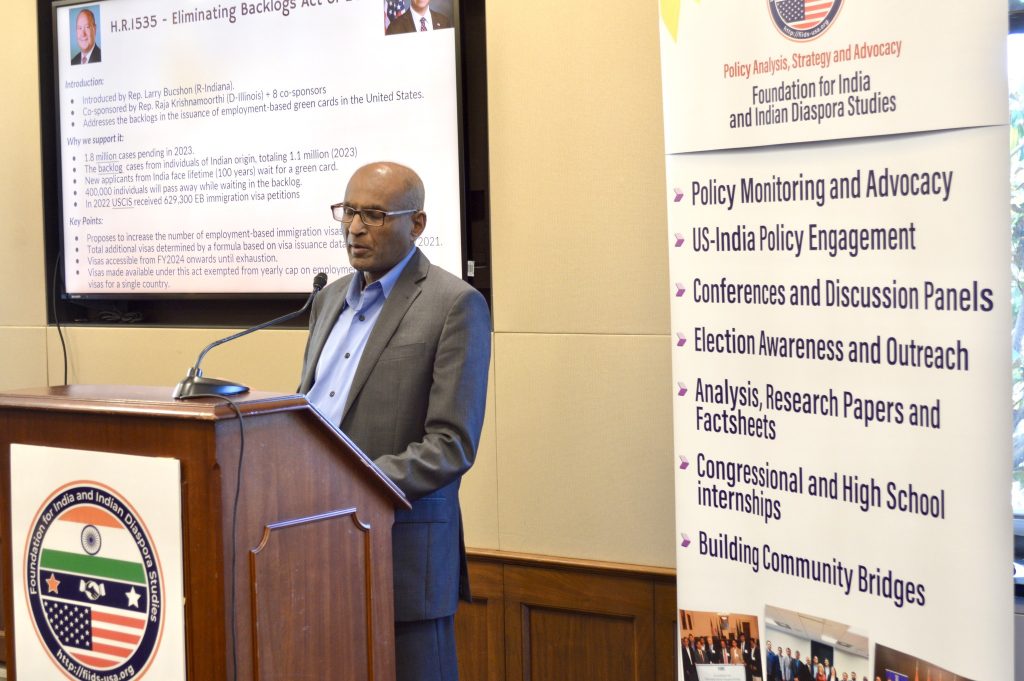
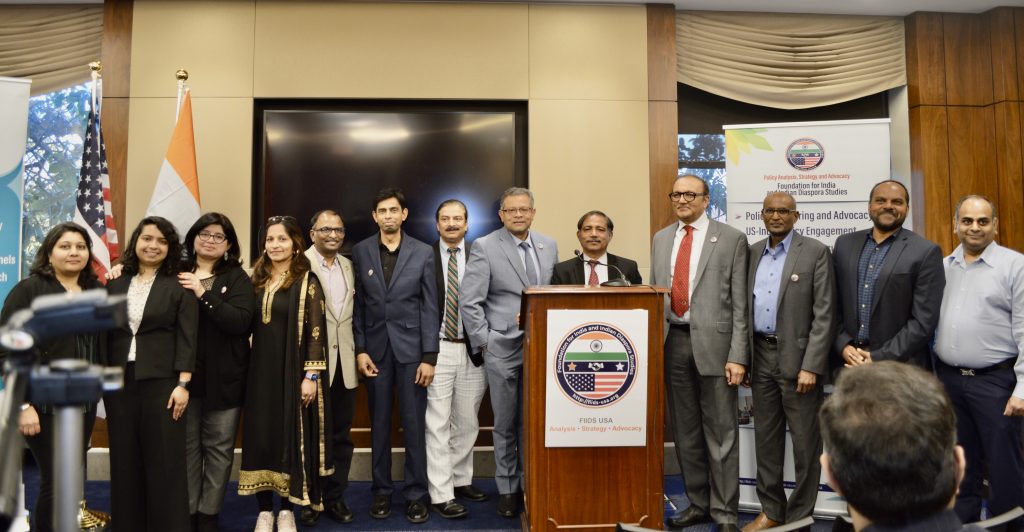
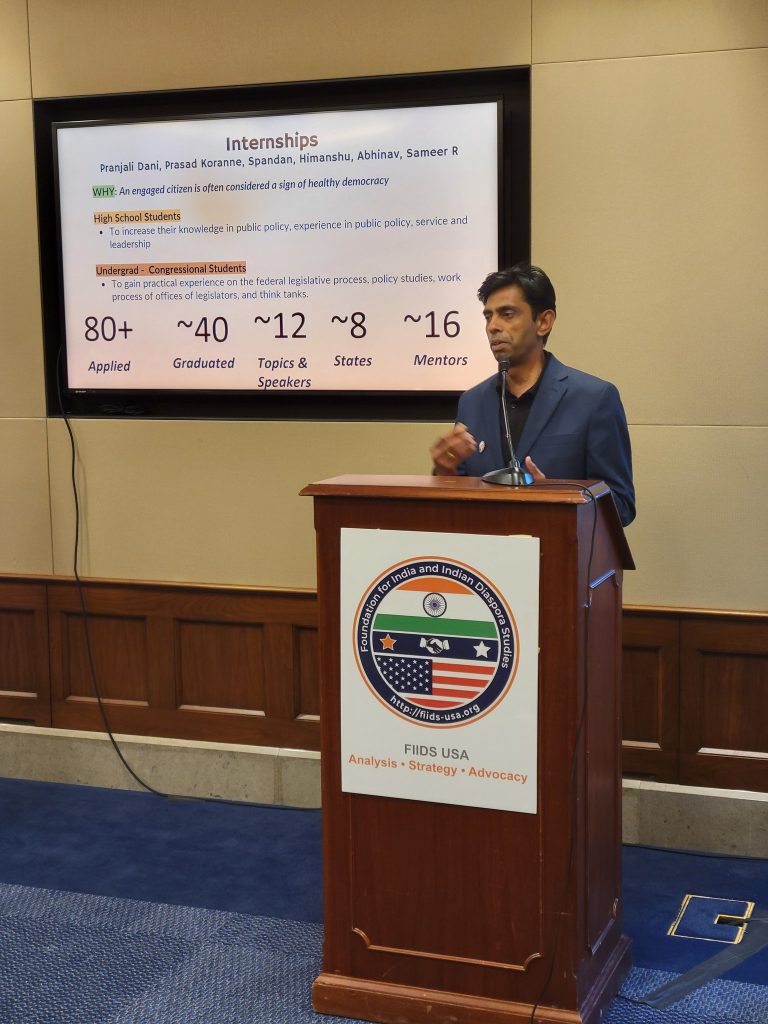
Tech Immigration Summit: Past Event
News Coverage:
Organized by the Foundation for India and Indian Diaspora (FIIDS)
Date: Monday, March 11th Time: 4:00 PM – 6:30 PM
Location: Rayburn House, Capitol Hill
Topic “The Tech Immigration Policies and their role in Bolstering the US Lead in Technology.“
Speaker: Rep. Raja Krishnamoorthi, Rep. Ro Khanna, Rep. Rich McCormick, Rep. Matt Cartwright, Rep. Thanedar, Rep. Eric Swalwell, State Department Director for India Mr. Scott UrBom, Aaron Rechlin-Melnick(the American Immigration Council), Thibault Denamiel(Center for Strategic and International Studies (CSIS)), Khanderao Kand (FIIDS), Neeraj Bhatia (Attorney and CPA) and many testimonies
Report:
On Monday, March 11th 2024, Foundation for India and Indian Diaspora (FIIDS), a US based think-tank hosted a ‘Tech Immigration Summit’ at the US Capitol. The summit aimed to bring together policy makers, think-tank experts, tech leaders, legal experts, and immigrant testimonies to address the role of Immigration policies in Bolstering the US Lead in Technology. Khanderao Kand from the Foundation for India and Indian Diaspora Studies (FIIDS) highlighted the significant contributions of technology immigrants, stating “From an innovation point of view, the largest innovators, patent holders are coming from the immigration background. Technology professionals, when they settle, they create jobs and wealth in the United States. However, theirs’ and their families’ contributions are choked by immigration rules like the 7% country-wise quota shackling them to the mercy of an employer, like ‘indentured servants’, while they wait decades for their green card.”
Bipartisan leaders at the summit emphasized the need for swift action on the Green Card backlog, and the per country cap on immigrant visas which are particularly affecting Indian professionals on H-1B. As per a report by CATO institute, currently there is a backlog of 1.8 million cases out of which 1.1 million petitions are from individuals with Indian origin. New applicants from India face an almost insurmountable lifetime (around 100 years) waiting for a green card.
Republican Congressman Rich McCormick from Georgia emphasized that the bipartisan bill (HR6542 which he spearheaded) is intended to eliminate the 7% per country cap and get rid of the backlog within 10 years. “You (STEM immigrants from India) people follow the law. You people pay the taxes. You have the perfect family model. We should reward that.” , he said.
Democrat Congressman Matt Cartwright, expressing his support for the bill, said that, “You know that the Congress allocates 140,000 green cards every year and the Immigration and the Nationality Act (INA) sets per country cap that allows only 7% of these visas to be issued to individuals from any one country. This obviously disproportionately hurts countries that are really big. Because individuals from certain countries make up a larger percentage of those seeking green cards, thousands of these visas go unused, every year. That is a missed opportunity.” and emphasized on addressing the long waits for green cards.
“India is one of the fastest growing economies in the world and its exports are growing fast but its best exports are Indian-Americans. Indian Americans are the most prosperous and best educated ethnic group in the country.” Congressman Raja Krishnamoorthy said. Mr. Raja Krishnamoorthy has sponsored multiple bills proposing to streamline the immigration process including increasing the country cap for green cards to 15% (HR6542), and increasing the number of employment-based immigration visas available to eliminate the green card backlogs (HR1535).
Congressman Ro Khanna, who is also the co-chair of the Congressional India Caucus, called for a rational immigration policy. He said he is co-sponsoring the Equal Access to Green cards for Legal Employment Act (EAGLE Act) of 2024 which proposes to increase family-based immigrant visa cap to 15% and eliminate per-country cap for employment-based visas.
Congressman Shri Thanedar of Detroit said, “the American immigration system is broken. We are losing so many skilled workers to Australia, Canada. They are taking advantage of our (US) broken immigration system.” He has introduced the “PHDs first” in the congress that supports and creates pathways to residency for candidates who hold doctoral degrees for accredited US institutions. He also promised to introduce a bill on OPT EAD which will help a lot of international students in the US.
Congressman Eric Swalwell from the 14th district of California stated that 40% of the constituents from his district were born outside of America and his district is one of the wealthiest districts in the US. “It is not an accident that you have one of the highest propensities of immigrants and one of the wealthiest districts.” he said. He further added “On the issue of the immigration we can either have a fix or we can have fiction.”
Mr. Scott Urbom, the State Department’s Director for India, Nepal, Sri Lanka, Bangladesh, Bhutan, and Maldives Affairs, also participated in the summit. He talked about current efforts by the U.S. government to reduce wait times for visa appointments at the U.S. Mission in India. He also emphasized the importance of U.S.-India relations as “the defining partnership of the 21st century.”
During the summit, experts from the American Immigration Council and the Center for Strategic and International Studies (CSIS) also shared their insights. Aaron Rechlin-Melnick, Policy Director at the American Immigration Council, highlighting the antiquity of the current immigration laws, stated, “The last time Congress updated our major immigration laws was November 1990. Our legal immigration today dates from a world that didn’t know what a website was.” He further stressed on the need to reform the immigration system, stating that, “Just clearing the backlog of employment based green card applications could unlock an estimated quarter of a trillion dollars of economic growth for the United States.” Thibault Denamiel, an Associate Fellow at CSIS, emphasized the pivotal role of immigrants in the tech sector and US’s national security. He noted, “Immigrants, for instance, comprise a significant majority of graduate students in AI-related fields like computer science and electrical engineering. They are responsible for 30-50% of the aggregate growth in US output between 1990 and 2010 alone.”
During the summit, many people and tech leaders, for instance, Tanuj Gundalpalli (ITSERVE), Deepak Thakkar (IIS), Nissim Reuben from AJC, Swamy Bogarrapu and a few students also provided their testimonials on the issues that they have been facing personally and professionally. They discussed the daily struggles of their life in the US of ‘limitless opportunities with infinite boundaries’. It was evident through their testimonies that people from all walks of life and at all stages of their lives were facing the brunt of the broken immigration system, with uncertainties surrounding their families and future. Almost all the testimonies highlighted a situation where meritocracy was no longer being valued, immigration laws restricting individuals from realizing their full potential.
Contact: advocacy@fiids-usa.org (202)318-7000

